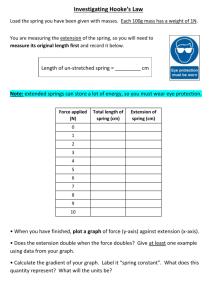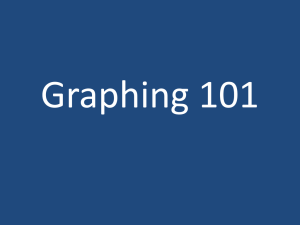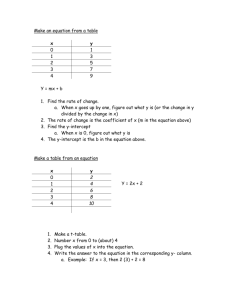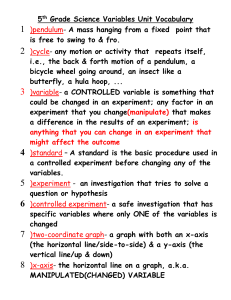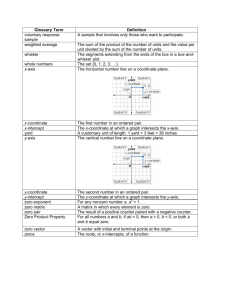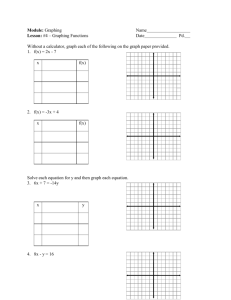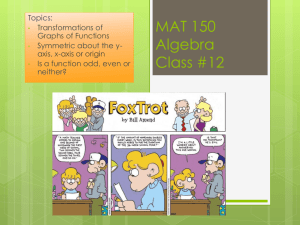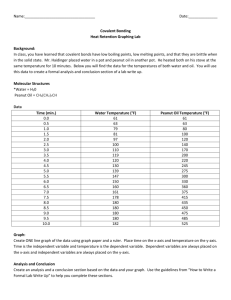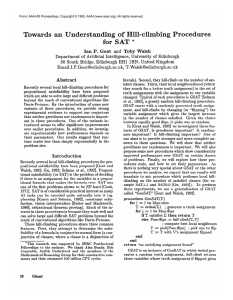2-6-1
advertisement
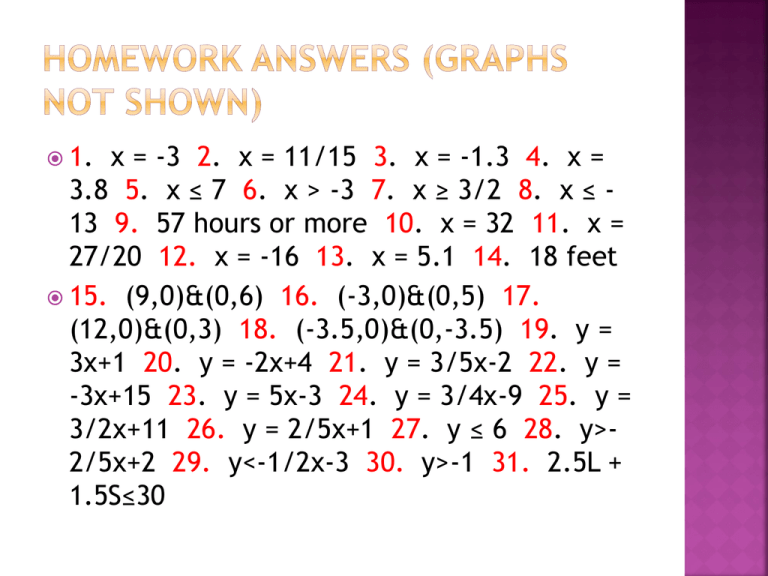
1. x = -3 2. x = 11/15 3. x = -1.3 4. x = 3.8 5. x ≤ 7 6. x > -3 7. x ≥ 3/2 8. x ≤ 13 9. 57 hours or more 10. x = 32 11. x = 27/20 12. x = -16 13. x = 5.1 14. 18 feet 15. (9,0)&(0,6) 16. (-3,0)&(0,5) 17. (12,0)&(0,3) 18. (-3.5,0)&(0,-3.5) 19. y = 3x+1 20. y = -2x+4 21. y = 3/5x-2 22. y = -3x+15 23. y = 5x-3 24. y = 3/4x-9 25. y = 3/2x+11 26. y = 2/5x+1 27. y ≤ 6 28. y>2/5x+2 29. y<-1/2x-3 30. y>-1 31. 2.5L + 1.5S≤30 Horizontal shift – moving a graph right or left F(x) -> f(x-h) moves it h units right. F(x) -> f(x+h) moves it h units left. Example: y = 3x+7 move two units left. Answer: y = 3(x+2) + 7 = 3x + 13 Check by graphing! Use calculator OR make input/output table to graph. Look at x – intercept – easiest way to see horizontal shift Vertical shift – moving a graph up or down F(x) -> f(x) +h moves it h units up F(x) -> f(x) – h moves it h units down Example: y = 3x + 2 move down 3 units Answer: y = 3x + 2 – 3 = 3x – 1 Check by graphing: Use calculator OR make input/output table to graph. Look at yintercept – easiest way to see vertical shift Reflection across y-axis – flips graph over y- axis F(x) -> f(-x) flips across y-axis Example: Reflect y = 3x + 7 over y-axis Answer: y = 3(-x) + 7 = -3x + 7 Check by graphing – when both graphed on same axes, image should be mirrored on either side of y-axis. Reflection across x-axis – flips graph over x- axis F(x) -> -f(x) flips (reflects) over x-axis Example: y = 3x+2 reflect over x-axis. Answer: y = -(3x + 2) = -3x-2 Check by graphing – when both graphed on same axes, image should be mirrored on either side of x-axis. Mean (average) --- sum all numbers, divide by how many numbers there are. Median --- order numbers from least to greatest, find middle number. If middle is between two numbers, average those two. Mode --- number that occurs most often. Can be no mode or more than one mode. Range --- subtract lowest number from highest number 2-6 #1,8,9,16,23,25

